Planned Parenthood video should sicken even pro-choice

Politics is not for the faint of heart or those with thin skin. That said, I’ve been around so much it takes a lot to unnerve me. The video of a Planned Parenthood executive attempting to sell the body parts of aborted babies has made me physically ill and the national organizations flippant response to the video is unconscionable. Over a million people have watched the video. I’m sharing it today with limited commentary as I cannot express right now how strong my feelings are that anyone would condone the actions as described in the video and that has been occurring in Planned Parenthood clinics. Alabama Today will follow this story closely and update as more reactions come in.
Hillary Clinton spends $19 million, hires hundreds
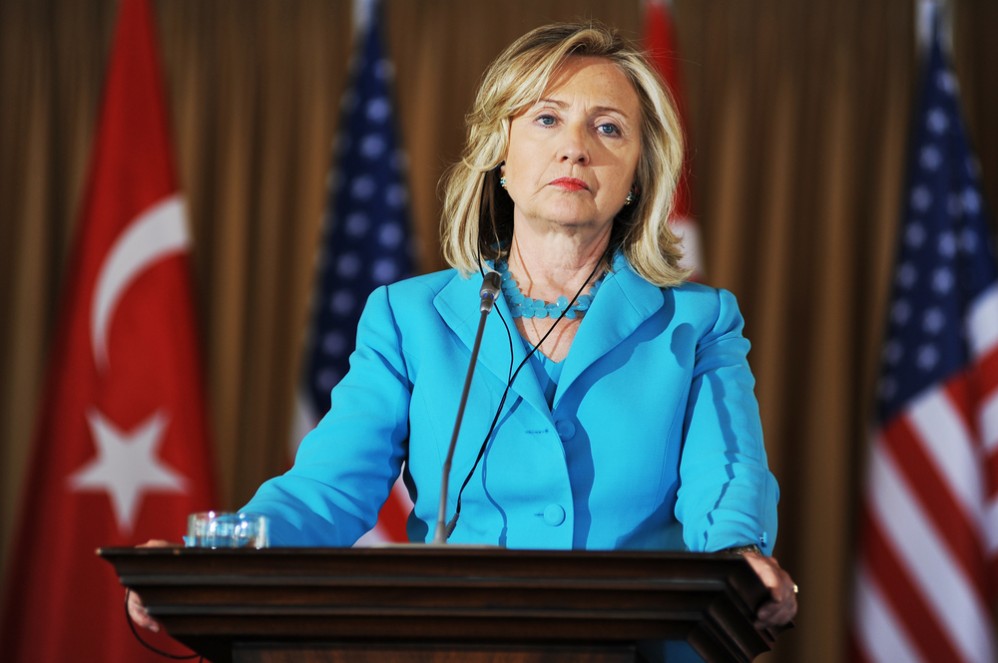
Hillary Rodham Clinton has spent nearly $19 million and has hired hundreds of staff during the first three months of her presidential campaign. That’s according to information released by her campaign in advance of a fundraising report she filed Wednesday with federal regulators. In total, Clinton raised more than $46 million from more than 250,000 contributors. Clinton’s spending underscores her early effort to build a national campaign, even as aides say she’s focused on the primary contest. Beyond paying salaries for 343 new employees, her campaign purchased lists of voters in four early voting states and spent heavily on building up a digital team. Her campaign also released a list of campaign bundlers, donors who each raised more than $100,000 for Clinton. Republished with permission of The Associated Press.
Mike Rogers: Taking care of our military

Properly funding our military is one of Congress’ most important jobs and critical in keeping our homeland safe and ensuring our country’s readiness. People across the globe look to the United States for leadership when it comes to our military. But our prestige as the world’s most dominant military will be in danger if Congress doesn’t do more to ensure our military remains strong. On the Armed Services Committee, my focus continues to be strengthening our national defense. Recently, I was selected to serve as a key negotiator on discussions between the House and Senate versions of the National Defense Authorization Act. From my perspective, you can’t win a war if you don’t have the best equipment to fight a war. Back home, the Anniston Army Depot is one of the most efficient maintenance and repair facilities in the entire military. I was pleased about two amendments included in the House-passed version of the Defense bill that would help protect jobs at facilities like the Anniston Army Depot. You may have seen on the news recently the Army announced cuts in the active duty military due to the relentless defense budget cuts imposed by President Obama. From his first day in office, Obama has sought to cut funding for our national defense. From the push for sequestration to his current veto threats of defense authorization and appropriations, these actions are threatening the creation of a shell of a military to face our very real threats in this dangerous world. Another area we must focus on is new, non-traditional threats. Not all our enemies are on the land, air or sea. Space is the next battlefield. Assured access to space and the pressing national security issue of reliance on foreign rocket capabilities is one of my top priorities. We cannot ignore this because of the very important role space plays in our national security. Mike Rogers represents Alabama’s 3rd Congressional District. He is in his third term.
Donald Trump: “A vote that I will win is the Hispanic vote”
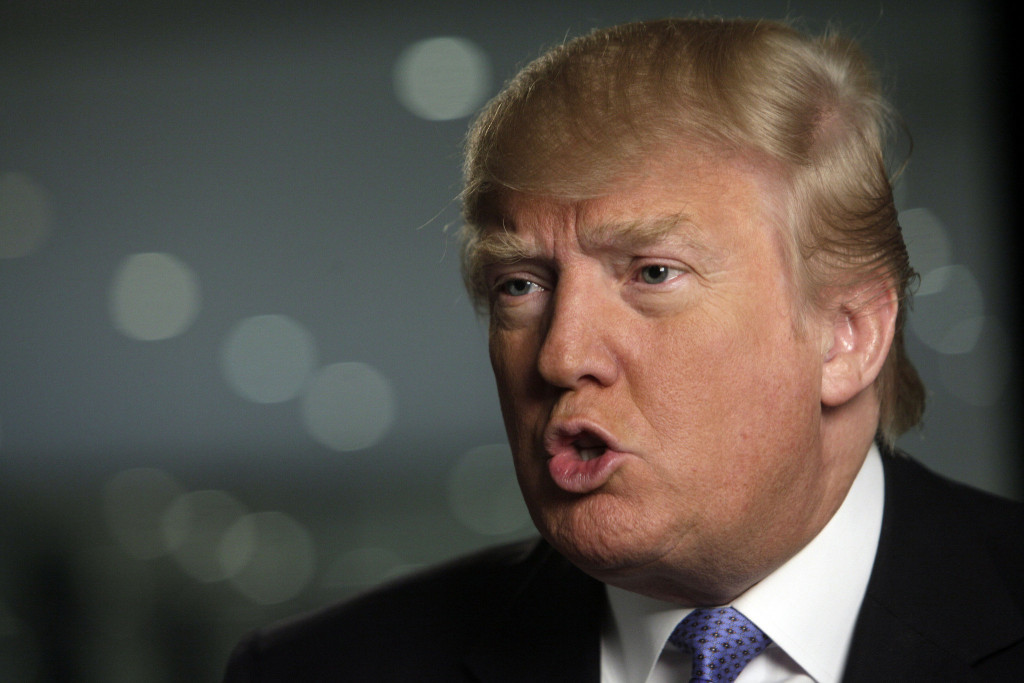
Republican presidential candidate Donald Trump says he’s confident he could win substantial Hispanic votes if he’s the party’s nominee. Brushing aside the controversy over labeling Mexican immigrants as “rapists” and “criminals,” Trump argues “the Hispanics love me.” He tells MSNBC: “I employ thousands of Hispanics.” Trump also says he’s not worried about any lack of support in the Latino community and argues he hasn’t been hurt politically by his calls for clamping down on illegal immigration. Trump has refused to soften his stand on immigration, even after a plea by Republican National Committee Chairman Reince Priebus (ryns PREE’-bus) that he tone down his remarks. The GOP fared poorly with the Hispanic community in the 2012 presidential election. Republished with permission of The Associated Press.
Bobby Jindal reports raising $597K for presidential race
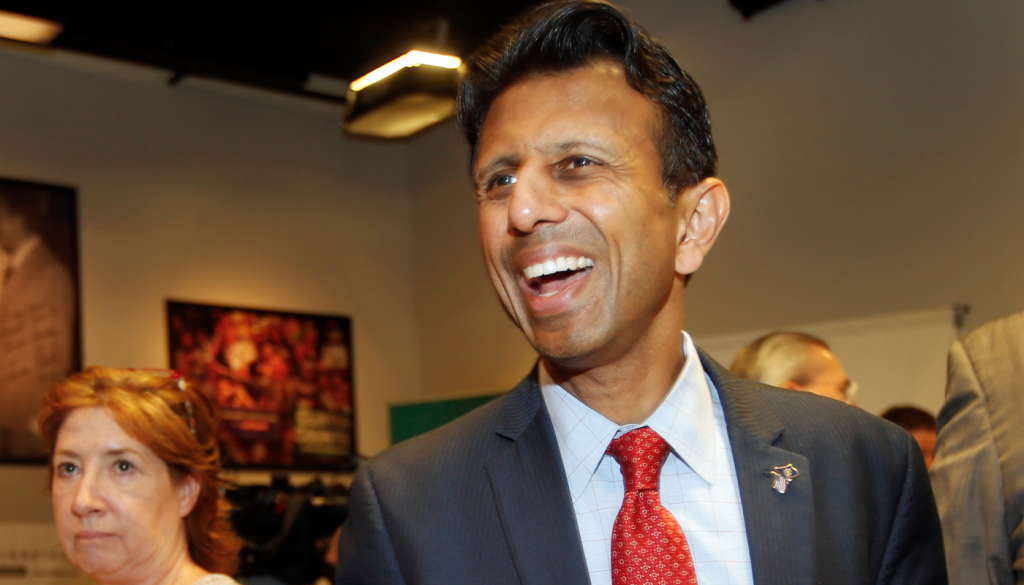
Louisiana Gov. Bobby Jindal, a Republican presidential candidate, has raised about $579,000 for his campaign. That’s according to financial reports his campaign filed Wednesday with federal regulators. Most presidential candidates are due to file similar documents by midnight. The GOP field is expected to have 17 candidates. Jindal announced his candidacy June 24 and raised the money in about a week. Documents show he is drawing most of his contributions from a base of supporters in Louisiana. The reports cover through the end of June. The report shows he spent about $65,000 in that time. Republished with permission of The Associated Press.
Anne-Marie Kaulfers: Fund Alabama Medicaid so children, adults have access to life-saving services

I see numerous children with diabetes and endocrine diseases who are on Alabama Medicaid. In fact, I’m one of the few pediatric endocrinologists in the state that does. As a specialist in Mobile, I also take care of patients covered by Mississippi Medicaid and Florida Medicaid. There’s a vast difference between the three programs in the reimbursement to doctors and covered services, both for children and adults. This disparity is a direct result of funding provided by each state’s legislature. Alabama Medicaid is one of the hardest to qualify for in the country. They are also one of the most efficient – if not the leanest – run operations. Yes, the state’s $600+ million share matched by nearly $6 billion in federal dollars, provider taxes, and intergovernmental transfers sounds like a lot of money. But let me give you an example of how well Alabama Medicaid manages your tax dollars. An insurance policy on the healthcare exchange would cost $2,292 for the annual premium and $4,000 out-of-pocket for an 8-year-old boy for a total of $6,292. Alabama Medicaid spends on average $4,474 per covered individual. That means the cheapest private insurance plan available for a child is still 40 percent more expensive than Alabama Medicaid. This year, Gov. Robert Bentley requested a 20 percent increase over the previous year’s Medicaid funding. The budget passed by the legislature and vetoed by the governor had a 5 percent cut to Medicaid as part of an effort to address a $200 million revenue gap – plus hundreds of millions in other obligations the state owes. The governor has called the Legislature back for a late-summer Special Session to address the General Fund budget, of which Medicaid consumes more than 37 percent — and growing. Some are saying to cut Medicaid because it’s “just an entitlement program.” That it is not. Medicaid is the backbone of the healthcare system in Alabama. It pays for more than half of all baby deliveries, and most of the 1-million-plus participants are children. On top of that, every dollar the state invests in the Medicaid program returns nearly three dollars from the federal government. How would you like that guaranteed rate of return from your bank? During the past few years in an effort to trim costs, Alabama Medicaid has been forced to cut too many essential services that are covered by nearly every other state Medicaid program and by private health plans. This growing disparity in access to care for Medicaid recipients is penny wise and pound foolish. It is accelerating the cost curve rather than slowing it down. Every day, I see costly and debilitating complications suffered by children, and hear about it constantly from doctors who treat adults. This is usually caused by a lack of adequate access to effective therapies to help control their diabetes. As a result, treatment for kidney disease, loss of vision, emergency room visits for hypoglycemia, and other diseases are driving healthcare spending upward. With properly funded Medicaid services, we could slow the rate of growth in overall system costs. So as the debate begins about what agencies or programs to cut or what revenues to increase, keep in mind that Alabama Medicaid can’t be an effective steward of your money without the tools to properly manage and contain the cost of chronic diseases like diabetes. Strategically spending dollars now can save many more down the road. Let’s also not forget that Medicaid is the critical foundation for most hospitals around the state, including my hospital, Children’s Specialty Clinic in Mobile, and the world-renowned Children’s Hospital in Birmingham. Join me in asking the state Legislature to fully fund Medicaid and continue to implement smart healthcare management that will provide real economic and clinical value to the taxpayers and patients in Alabama for many years to come. All of our citizens deserve it. Anne-Marie Kaulfers M.D. is a Pediatric Endocrinologist at Children’s Specialty Clinic, part of the University of South Alabama Health System in Mobile, Ala.
In South Carolina, Confederate flag not an issue for Scott Walker

Republican Scott Walker pledged Wednesday to scrap the Obama administration’s nuclear deal with Iran if elected president. The Wisconsin governor also vowed to repeal the federal health care law, mocked climate change and railed against “union bosses” in a visit to South Carolina. But Walker did not mention the Confederate battle flag, even as he praised South Carolinians for their response to the murders of nine worshipers at a historic black church. Welcome to the new paradigm for the South’s first 2016 primary. Walker is the first high-profile presidential candidate to campaign in South Carolina since the Civil War era battle flag was removed from the Statehouse grounds this past Friday. The result of an emotional vote in the Republican-controlled Legislature, the withdrawal of the flag from the premises came in response to the killings at Emanuel African Methodist Episcopal Church; pictures of the accused gunman showed him displaying the banner that is still commonly seen throughout the Old Confederacy. Walker praised the assembly for how South Carolinians have reacted. “You all showed how to bring people together for this region, this state and, in turn, you did it for the country,” said Walker, who formally entered the Republican presidential contest earlier in the week. He is among many Republican White House hopefuls who have tread cautiously on the flag issue, a political flashpoint for years. The state’s influential conservatives have long viewed it as a symbol of Southern pride, while many minorities viewed the banner as a symbol of hate. The debate played out most conspicuously in the bitter 2000 primary between George W. Bush and John McCain. South Carolina leaders struck a compromise that year to move the flag from atop the Capitol dome to a ground-level pole where it remained until last week. Bush and McCain both declared that flying the banner was an issue of “states’ rights,” a buzz phrase that traces back to the pre-Civil War debate over slavery. Bush won that primary and the nomination; McCain later went on to disavow his position, writing in a memoir that he should have opposed its public unfurling. As Gov. Nikki Haley — a politician who once avoided questions on the flag as well — pushed for the flag’s removal in recent weeks, presidential candidates including Walker avoided taking a firm position. Walker’s stock answer was to say he wouldn’t address it until after the victims were properly mourned. Cindy Costa, a Republican National Committee member from Charleston, said Wednesday it is “absolutely a good thing” that the flag is down. She called it “the right thing to do” at “a sensitive time in our state’s being,” but she also celebrated that the removal dulls a political attack “that Democrats used against us.” The debate comes as the GOP works to win over minority voters who are becoming a more powerful voice in national politics. A Democratic leader in the Legislature summed up the GOP challenge. Haley did “the right thing,” said state Rep. Todd Rutherford of Columbia, adding that she is “saving the Republican Party from itself — stopping all the presidential candidates from sounding silly saying the flag is a states’ rights issue and not a human rights issue.” For her part, Haley even gives a nod to the politics. Recalling a recent conversation she had with Walker, she said, “I said if you have any uncomfortable things (regarding the flag), we’ll help you get through it, but I’m going to take care of this.” Walker supporters Wednesday said they were more excited to hear the Wisconsinite’s pitch on national issues anyway. “He’s a fighter, not an establishment Republican, and that will play very well here,” said Edward Lynch, a self-employed security contractor. Walker was thin on details, including offering no explanation of how his promise of “crippling economic sanctions” on Iran would differ from the sanctions that have been in place for years leading up to the Obama administration’s Iran deal. The pact offers trade aid and sanctions relief in exchange for Iran giving up most of its enriched uranium and granting inspections of its nuclear operations. But Lynch said those details don’t matter. “I’m tired of the go-along-get-along politicians,” he said. “He’s got guts.” Republished with permission of The Associated Press.
NAACP suggests removal of Confederate flag from Alabama trooper uniforms
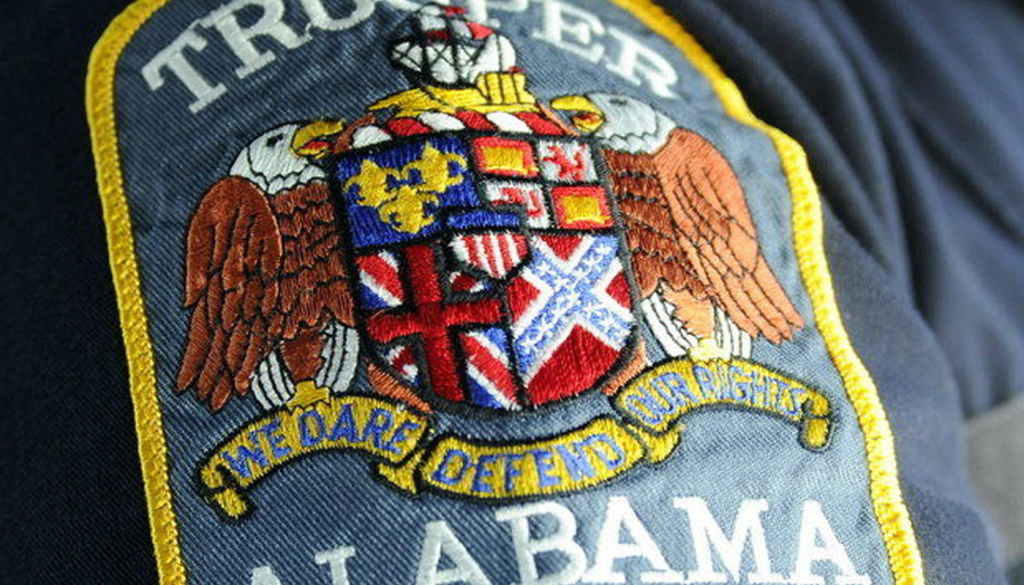
An Alabama chapter of the NAACP says it’s time to remove the Confederate battle flag from state troopers’ uniforms and patrol vehicles. Rev. Robert Shanklin of the NAACP’s Huntsville chapter told local media the flag is offensive and should not be included in uniforms state troopers wear or on the vehicles they drive. The battle flag is part of the Alabama state seal. The flag has come under renewed scrutiny since nine black churchgoers were fatally shot during Bible study in Charleston, South Carolina. The man charged in the shooting had been photographed with the flag numerous times. Some have said the flag represents Southern heritage. Others have said the symbol is divisive and white supremacy is at the heart of the heritage the flag represents. Republished with permission of The Associated Press.
Alabama Power seeking up to 500 megawatts of renewable generation, including solar

Alabama Power aims to boost its renewable power options in a move that could allow the company to offer more solar power than it has ever offered before. The company said, in response to growing customer interest, it is seeking approval for up to 500 megawatts of generation from renewable resources, including solar. In June, Alabama Power filed a petition with the Alabama Public Service Commission (PSC) to allow the company to pursue a variety of projects up to 80 megawatts each, totaling up to 500 megawatts over a six-year period. The company has identified solar as one of the areas for potential growth in renewables. “This proposal provides a common-sense path for expanding renewables in Alabama,” said Nick Sellers, Alabama Power vice president of regulatory and corporate affairs. “The Public Service Commission has been clear that they do not want renewables to be subsidized by all of our customers. This filing achieves that policy directive while also allowing for solar and new renewable energy projects that are expected to provide economic benefit for all of our customers.” If approved, the plan would allow Alabama Power to build its own renewable projects or purchase power from other renewable-generated sources. Sellers said 500 megawatts is between four percent and five percent of the company’s capacity. The company said it is prepared to move forward working with interested customers on projects upon receipt of PSC approval. “This program was driven by conversations with customers looking to meet renewable mandates pushed down from their headquarters,” said Tony Smoke, Alabama Power vice president of marketing. “Our field representatives have worked hard to identify customers who could be impacted and if this is approved, we will go directly to work with them to explore options.” As an example, 500 megawatts of solar power is enough renewable energy to serve about 100,000 homes during an hour of peak sun intensity on cloudless days. Alabama Power already has 1,600 megawatts of hydro resources across Alabama, and 404 megawatts of wind generation from projects in Kansas and Oklahoma. Alabama Power has the ability to resell this energy, or the associated renewable energy credits, to third parties to help keep rates low for customers. As more customers wanted solar within the mix of renewable options, Alabama Power has been exploring the best ways to meet that demand without adversely impacting existing customers. “The renewable generation program would provide broad options for us to work with customers willing to pay for renewable costs, while allowing us to protect other customers from bearing additional costs,” Smoke said. “As a service provider, our focus is to make sure we are providing customers access to choices they want,” Smoke added. “Through this plan, we are creating new customer options to sustain and grow industry in our state.” Sellers said the demand for the renewable mix and the costs of providing it are at a point now where Alabama Power can do so without impacting what other customers pay for electricity. “We’ve got customer interest in renewables, and particularly in solar right now. We want to make sure we have that offering available to those customers who are interested at looking at more renewables in the state,” he said. “We’ve seen a growing trend for more renewables and particularly for solar from some of our customers. It’s usually those customers that are under some sort of a mandate, either a government mandate or a corporate mandate.” The company is no stranger to renewable energy. “Our company was founded on renewable energy – hydroelectricity,” Sellers said. “As you know, we’ve got a significant amount of wind generation in our portfolio and now this gives us an opportunity to add solar to that renewable generation mix as well.” Solar energy could grow along with other forms of renewable energy as long as they don’t unfairly burden customers, Sellers said. Republished with permission of Alabama Newscenter Michael Tomberlin is the Editor of Alabama Newscenter, a senior communications specialist with Alabama Power, and an artillery officer in the Alabama National Guard.
Iran deal sets 2016 clash between Hillary Clinton and GOP hopefuls
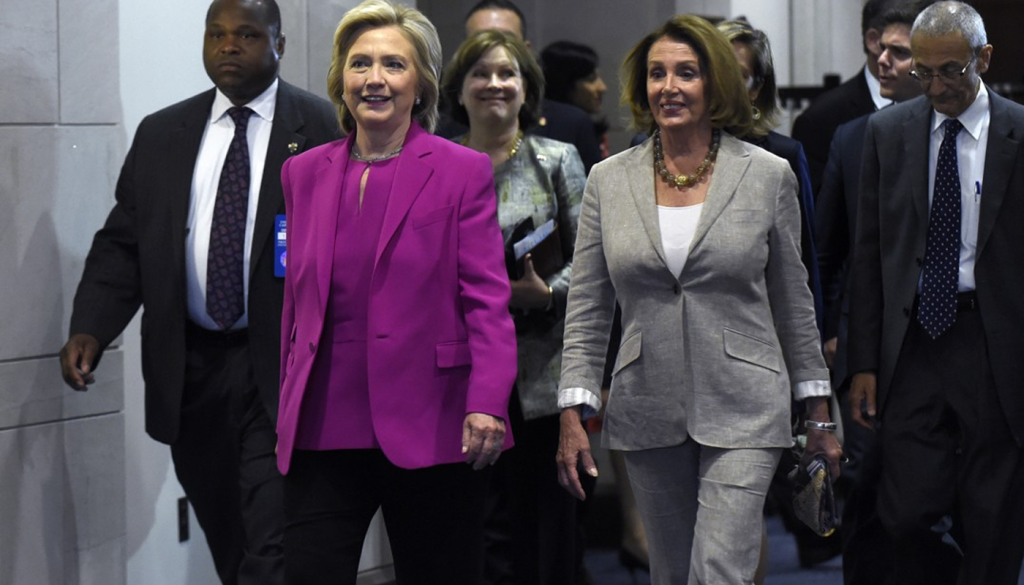
Hillary Rodham Clinton embraced a landmark nuclear deal with Iran on Tuesday, calling it the most effective path for the U.S. to prevent Iran from acquiring nuclear weapons. But she warned it would need strict enforcement, underscoring the tension between President Barack Obama‘s foreign policy legacy and the White House aspirations of his first secretary of state. In a lengthy statement released late Tuesday, Clinton said she supported “the agreement because it can help us prevent Iran from getting a nuclear weapon.” But her written statement, following a day of meetings with Democratic lawmakers in Congress, also called for a “clear-eyed” assessment of the threat Iran represents to the U.S. If elected, she vowed a tough response if Iran failed to live up to its end of the bargain. “We can never permit Iran to evade its obligations or to place any suspicious site off limits to inspectors,” Clinton wrote. “And the response to any cheating must be immediate and decisive – starting with the return of sanctions but taking no options off the table, including, if necessary, our military options.” Clinton has largely supported the Obama administration’s negotiations over the past two years. She has stayed involved with their progress with regular briefings, according to aides who spoke on the condition of anonymity because they weren’t authorized to publicly discuss private meetings. But navigating the political nuances of a historic agreement with a decades-long U.S. enemy heading into a presidential election year may end up being far more complicated. On Tuesday, Republican candidates signaled that Clinton would be forced to defend her position in the general election and warned of violent chaos in the Middle East as a result of the agreement while calling on Congress to try to halt it. Campaigning in Iowa on Tuesday, former Florida Gov. Jeb Bush called Obama’s actions “naive and wrong.” “This isn’t diplomacy – it is appeasement,” said Bush, one of the many Republicans who lashed out over the agreement. Wisconsin Gov. Scott Walker said the bargain “will be remembered as one of America’s worst diplomatic failures.” Florida Sen. Marco Rubio, who, like Walker, has vowed to rescind the agreement should he be elected president, said: “I believe this deal undermines our national security.” Though a slim majority of Americans back diplomacy with Iran, 56 percent consider Iran an enemy of the U.S., according to a new Associated Press-GfK poll taken before the deal was announced. Israeli leaders – who hold sway with some Jewish voters – see the agreement as a threat to their country’s very existence. And Republicans have already spent months trying to link Clinton to Obama, who has seen approval ratings for his foreign policy sink in his second term. Clinton’s current place in the Iran debate marks a striking role reversal for the second-time presidential candidate and her long-ago rival. In 2008, she called Obama’s offer to meet with Iran’s leader without preconditions “irresponsible and, frankly, naive.” And when Clinton said she would “obliterate” Iran if the country used nuclear weapons against Israel, Obama likened her “bluster” to the “tough talk” of then-President George W. Bush. Four years later, as secretary of state, Clinton dispatched a top adviser, Jake Sullivan, to participate in the secret meetings with Iran through the sultan of Oman that led to the start of the international negotiations. Sullivan, who could serve as Clinton’s national security adviser if she’s elected, declined to speak for Clinton during a breakfast with reporters. When asked for his own views, Sullivan said: “I believe that this deal is the best and most effective way to prevent Iran from getting a nuclear weapon. That’s my personal view.” Clinton, however, has long wondered publically whether a deal would ever take shape. She told an American Jewish organization last year that she was “skeptical the Iranians will follow through and deliver.” She said she had “seen many false hopes dashed through the years.” Now, skeptical congressional Democrats are looking to Clinton for direction as they weigh the completed agreement. With the deal between the world powers now finalized, Congress has 60 days to assess the accord and decide whether to pursue legislation imposing new sanctions on Iran or try to prevent Obama from suspending existing ones. If Clinton wins, her commitment to implementing the agreement will play a huge factor in its potential success. “She’s one of two of the most important, most influential voices in this debate, the other being President Obama,” said New York Rep. Steve Israel, who met with Clinton on Tuesday morning. “Her opinion is critically important.” Though Clinton praised the deal, she warned that the agreement would not end Iran’s “bad behavior” in the region, such as sponsoring terrorists, and noted that the country remains a major threat to Israel. The Democratic Senate leader, Sen. Harry Reid of Nevada, said Clinton had told the rank-and-file privately “let’s find out for sure what’s in it.” After meeting earlier with Clinton, House Democrats said she offered a far more positive assessment behind closed doors, though they noted that Clinton did not explicitly urge them to vote in favor of the deal. “She endorsed it. Full-throated,” said Virginia Rep. Gerry Connolly, who attended the closed-door meeting. “She was not equivocal at all in her support of the deal as she understands it.” Republished with permission of The Associated Press.


